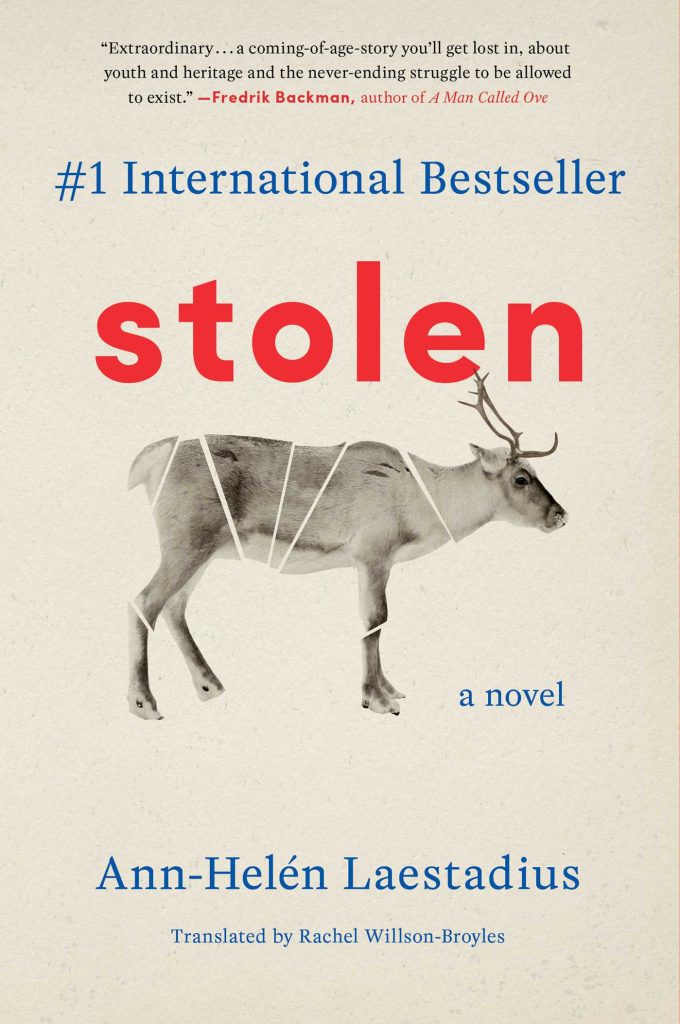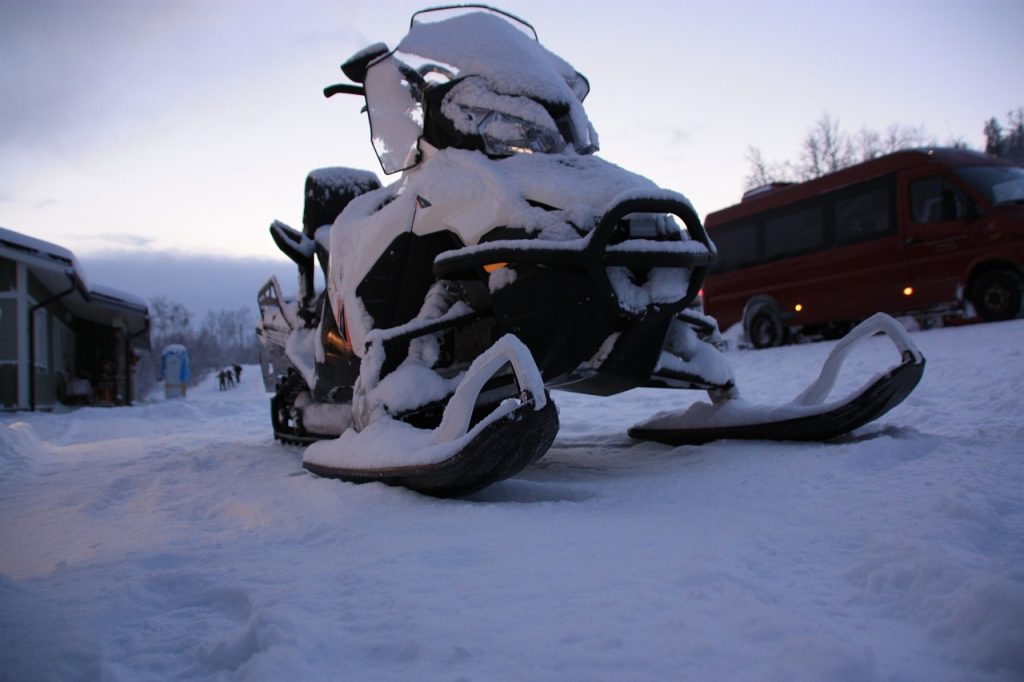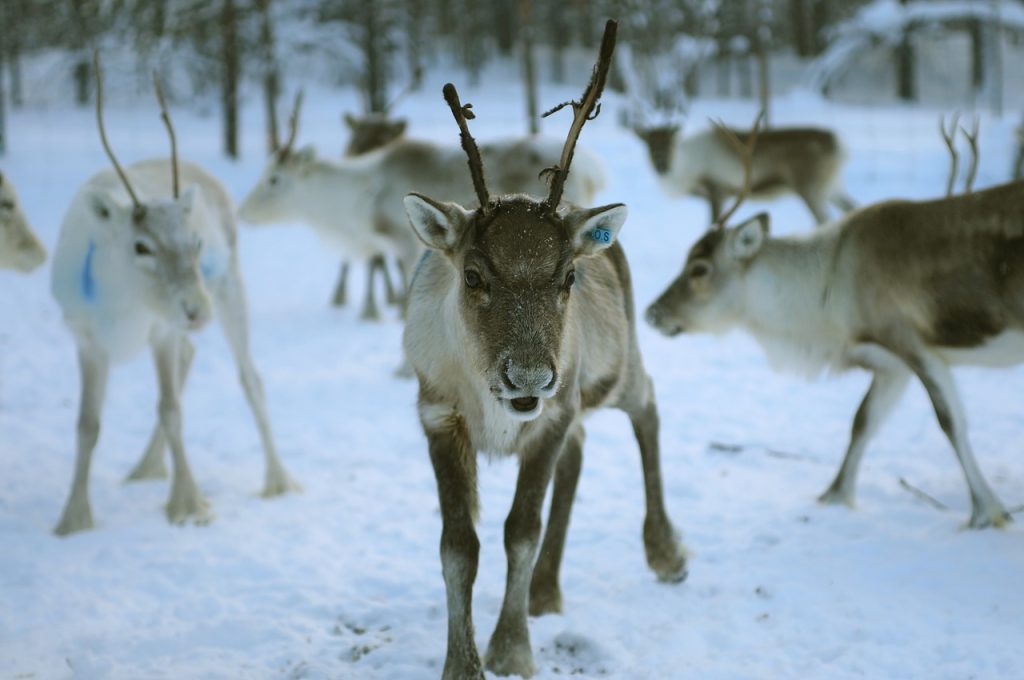To be silent is to die. And I refuse to die in silence
As I mentioned in my list of books from Sweden, I already read my fair share of Swedish novels. What I had never read, however, was a book written from the perspective of the Samí people of Lapland. So, for Sweden I went for broadening my cultural knowledge and read Stolen by Ann-Helén Laestadius.
Lapland is a cultural region spanning the northernmost parts of Norway, Sweden, Finland, and a portion of Russia’s Kola Peninsula. I use the term Lapland here for search reasons, but I am aware that it is a term historically used by outsiders, and some Sami people prefer not to use it, as “Lapp” can be seen as a derogatory term. They often refer to their homeland as Sápmi, which is the Samí name for their cultural region.

Stolen is fiction, but the author, who is herself of Samí origin, explains in a note, that it draws on real-life events that have been taking place in Sápmi for years.
The story of Stolen begins with nine-year-old Elsa witnessing a poacher brutally killing her bellowed reindeer calf, Nástegallu. The blood against the white snow explained in horrific detail. Frozen with fear, though Elsa knows the poacher, and her family urges her to speak, she does not report that she saw him. Instead she lives on with the trauma of that day ever lingering, and the crime goes unpunished and uninvestigated as many before it.
For the Samí, their reindeer aren’t just animals — they’re livelihood, tradition, and identity. So the evil act from the start seems more like a hate crime, than a simple act of theft.
Reindeer were quiet. They didn’t scream if someone cut them with a knife;
they didn’t scream when the wolverine bit into their necks
and paralyzed their bodies. They didn’t have screaming in them.
Through the novel Laestadius paints a very vivid picture of the Samí way of life. She treats us to lovingly detailed descriptions of the bright red and blue gákti that the people wear, the joiks they sing, and the traditions that mark the changing of the seasons like the ear-marking of the reindeer. All of this gives the story a rich and culturally very interesting backdrop.
But she most certainly does not romanticize Samí life. We are also shown how children have to leave home at 15 to attend school in the city, losing connection to their roots. How ambulances are more than an hour away. How climate change is altering what used to be solid traditions. And she doesn’t shy away from treating the tensions within the close-knit community of the Samí themselves either. Elsa struggles not just against the outside world, but also rebels against the very gendered rules and traditions of her culture.

The nature setting of this book is breathtakingly beautiful, but underlying it all is a quiet sense of despair — manifesting in alcoholism, high suicide rates, and the weight of knowing that your very way of life is slipping away from under you.
Ten years after the incident that opened the book, Elsa has become increasingly aware of the broader injustices her community faces. Particularly how the police refuse to investigate crimes against the Sami, and local authorities dismiss their complaints. She is torn between her fear of retaliation and her growing anger at the silence surrounding the crimes against her people.
The snowmobile roared across the ice and she followed behind, the world’s fastest princess with her hair streaming in the wind. And now she could joik clearly; the sound of the snowmobile drowned it out and guarded her secret. It was just her, the ice, and her lands.”
A thrillingly dramatic final confrontation with the man who killed Nástegallu is of course inevitable, and you are in for some very surprising plot twists in the latter part of the novel. But you will have to read that for yourself! (Or maybe watch the Netflix adaptation that came out in 2024. I have not watched it, so if you do, tell me if I should!)
For me personally, Stolen was an interesting novel. I wouldn’t call it a page turner exactly, it is quite a slow burn. But the story did draw me in, and gave me a fascinating glimpse into a world I hardly knew existed. I certainly left this book more knowledgeable than I was going in, and that is indeed one of the main points of this whole journey.
Join me again on tuesday, when I move on to Norway!





I have to confess I knew nothing of the Samí people until I read your highly informative review. Just as I was introduced to the Inuit of Greenland in ‘Miss Smilla’s feeling for Snow” on your booklist for Denmark, the Borderless Bookshelf is already proving a cultural education for me!
I haven’t read Stolen but I was prompted to watch the film which I appreciated a lot. It felt very much an authentic and unromanticised portrayal of life in the wild and ecologically deteriorating landscape of Sápmi (the Director and cast were all of Samí heritage.) Of course this will never replace the experience of the novel but for now my TBR list is rapidly getting out of control!
Same. I knew nothing of Samí culture. Except a tiny bit from The Wolfskin trilogy by Kerstin Ekman which I read some years ago. (It’s great – put it on your never ending TBR list …)